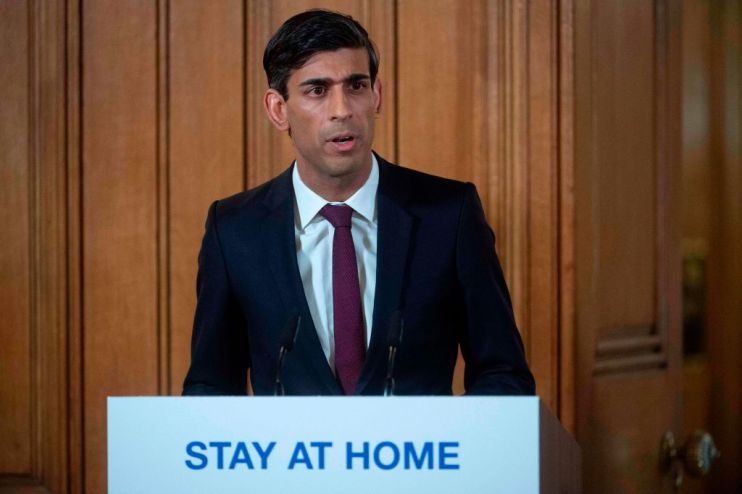Coronavirus: UK government borrowing could top £300bn, says think tank

UK government borrowing could hit £300bn this year as tax receipts collapse and the Treasury pumps money into the economy to tackle the fallout from coronavirus, according to a new report.
The £300bn figure, produced today by the Centre for Policy Studies (CPS) think tank, would be by far the biggest budget deficit since World War II and is even higher than an estimate made last week by the Office for Budget Responsibility (OBR).
The CPS’s updated forecasts included estimates from other organisations in places where the OBR did not attach numbers to schemes, as well as newly announced spending.
Most of the borrowing will be driven by a £130bn collapse in the government’s tax receipts as the economy suffers its worst year since perhaps the 1930s.
Spending programmes such as the job retention scheme and small business grants will also be hugely costly. They will help drive borrowing up to 15 per cent of UK GDP, according to the CPS, well above the rate seen after the financial crisis.
Since the coronavirus outbreak began in earnest in Britain in March, the government has rolled out numerous schemes to limit the collapse in the economy. Its economic approach has won praise, with The International Monetary Fund (IMF) saying last week that the UK has done “all the right things” economically.
The costs are set to be huge, however. The OBR, the UK’s official budget forecaster, last week said the cost to the exchequer could be £271bn in the 2020-21 financial year.
The centre-right CPS think tank today produced a more up-to-date assessment, saying the total could be £301bn.
It said the cost of the support schemes themselves could add £127bn on to borrowing, with £119bn lost due to lower tax receipts and higher welfare payments. However, the CPS cautioned that any predictions in the current climate are deeply uncertain.
Top 10 biggest government programmes
| Scheme | Cost in 2020-21 |
| Coronavirus job retention scheme | £42bn |
| Small business grant schemes | £15bn |
| NHS historical debt write-off | £13bn |
| Self-employment income support scheme | £10bn |
| Welfare | £7bn |
| NHS emergency response funding | £6.6bn |
| Coronavirus business interruption loan scheme | £6bn |
| Rail emergency measures | £3.5bn |
| Local authority funding | £3.2bn |
| Devolved administration public service funding | £2bn |
The CPS’s updated forecasts add more detail to the OBR scenario while also accounting for new schemes.
For example, it has included in its figures an estimate that defaults on loans made through the coronavirus lending scheme for small and medium-sized businesses will cost the government £6bn. It said interventions in the railways could cost £3.5bn.
The CPS’s figures also reflect new government programmes, such as the support announced last week for rough sleepers and other vital services.
CPS director Robert Colvile praised the government’s moves “to save lives and protect livelihoods”.
He added that it is “vital to get the most accurate possible picture of the burden the government is taking on in order to assess the full scale of the rebuilding that lies ahead”.